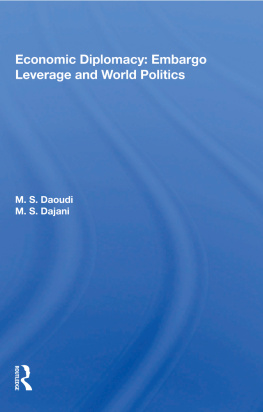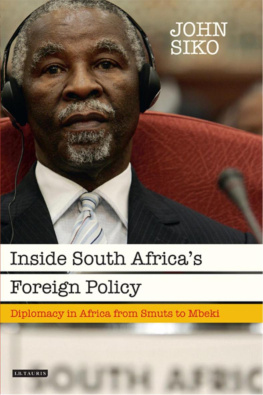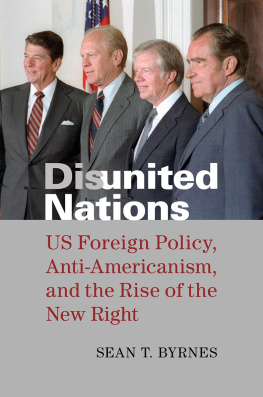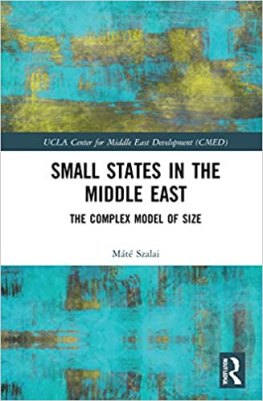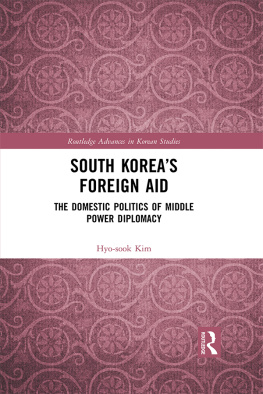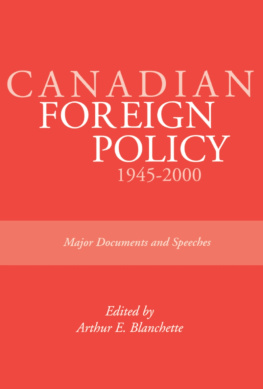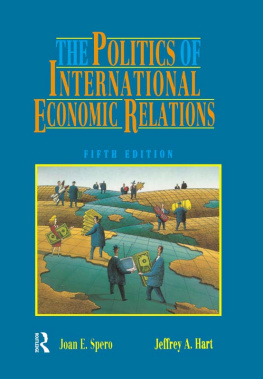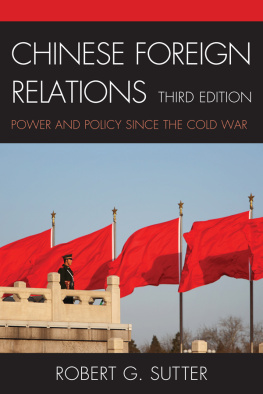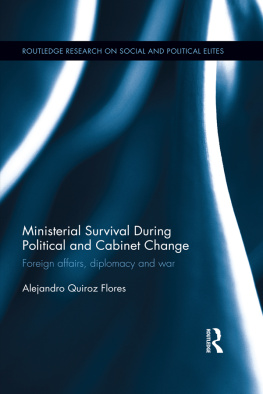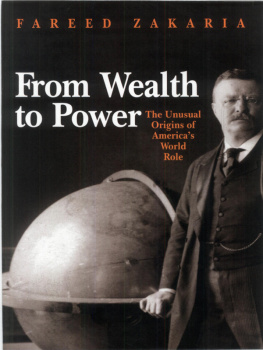Economic Diplomacy
Also of Interest
The Politics of East-West Trade, edited by Gordon B. Smith
Strategic and Critical Materials, L. Harold Bullis and James E. Mielke
The Political Environment of Economic Planning in Iran, 1971-1983: From Monarchy to Islamic Republic, Hossein Razavi and Firouz Vakil
The Gulf and the Search for Strategic Stability: Saudi Arabia, The Military Balance in the Gulf, and Trends in the Arab-Israeli Military Balance, Anthony H. Cordesman
The Foreign Policies of Arab States, Bahgat Korany, Ali E. Hillal Dessouki, et al.
Political Risk in the International Oil and Gas Industry, Howard L. Lax
OPEC, the Gulf, and the World Petroleum Market: A Study in Government Policy and Downstream Operations, Fereidun Fesharaki arid David T. Isaak
Oil Strategy and Politics, 1941-1981, Walter J. Levy, edited by Melvin A. Conant
The Geopolitics of Energy, Melvin A. Conant and Fern Racine Gold
Economic Coercion and U.S. Foreign Policy: Implications of Case Studies from the Johnson Administration, edited by Sidney Weintraub
Available in hardcover and paperback.
Westview Special Studies in International Relations
Economic Diplomacy: Embargo Leverage and World Politics
M. S. Daoudi and M. S. Dajani
The 1983 collapse of world oil prices revived memories of a time only a decade earlier when the price of a barrel of oil did not exceed three dollars. By the late 1970s, spot market prices had reached peaks of forty dollars a barrel. A major role in creating these new realities was played by the 1973/1974 Arab oil embargo, which formed the psychological, political, and market conditions for the dramatic price surge. This important study probes the embargo in detail, thoroughly examining its history, the motivations that caused it, and its ripple effect on world politics and the international economic order. The authors carefully examine the interruption of oil supplies to Western Europe during the 1956 Suez Canal crisis, the growing momentum of Arab oil leverage beginning with the First Arab Petroleum Congress in 1959, the decline of the oil companies' domination of the petroleum industry, and the Arab political environment between the 1967 Arab defeat and the 1973 Arab oil embargo. The book concludes with a chapter addressing the lessons to be learned from these recent embargoes.
Dr. M. S. Daoudi is director of International Industrial Investments, a company specializing in industrial projects in the Middle East. He is a political economist who holds doctoral degrees from the University of South Carolina at Columbia and the University of Texas at Austin and has taught at both universities. He recently completed a study dealing with the longevity of OPEC. Dr. M. S. Dajani holds degrees in business, economics, government, and international relations. At present, he is working on a book on international politics, the United Nations, and the Palestine question. Drs. Daoudi and Dajani are the authors of Economic Sanctions: Ideals and Experience (1983).
Economic Diplomacy: Embargo Leverage and World Politics
M. S. Daoudi and M. S. Dajani
First published 1985 by Westview Press
Published 2018 by Routledge
52 Vanderbilt Avenue, New York, NY 10017
2 Park Square, Milton Park, Abingdon, Oxon OX14 4RN
Routledge is an imprint of the Taylor & Francis Group, an informa business
Copyright 1985 by Taylor & Francis
All rights reserved. No part of this book may be reprinted or reproduced or utilised in any form or by any electronic, mechanical, or other means, now known or hereafter invented, including photocopying and recording, or in any information storage or retrieval system, without permission in writing from the publishers.
Notice:
Product or corporate names may be trademarks or registered trademarks, and are used only for identification and explanation without intent to infringe.
Library of Congress Cataloging in Publication Data
Daoudi, M. S.
Economic diplomacy.
(Westview special studies in international relations)
Bibliography: p.
Includes index.
1. Petroleum industry and tradePolitical aspects
Arab countries. 2. Arab countriesForeign economic
relations. 3. Arab countriesForeign relations.
I. Dajani, M. S. II. Title. III. Series.
HD9578.A55D36 1985 327.1'11 84-15217
ISBN 0-8133-0101-7
ISBN 13: 978-0-367-00602-0 (hbk)
To
King Hussein Ibn Talal
and to the memory of
King Faisal Ibn Saud and
President Gamal Abdel Nasser
Three towering leaders of our time,
each of whom inspired a nation in his own way
This book has taken us nearly eight years, during which time it benefited from our association with a number of people who deserve particular mention. First and foremost, we record with pleasure our personal gratitude to James A. Bill, Carl Leiden, and Raymond A. Moore, whose direction and guidance helped to clarify and develop our ideas, and whose continued faith and encouragement brought this work to its final fruition. We are also indebted to Richard Fortes, Donald Weatherbee, Hafez Farmayan, Robert Stookey, Janice J. Terry, Kenneth Perkins, Norman Schofield, Thomas D. Kelly, Robert Wirsing, Natalie K. Hevener, and James N. Roherty, who read either parts or the entire manuscript and offered valuable comments and suggestions.
This is hardly the place to acknowledge accumulated professional debts. Nevertheless, during these eight years several other people have introduced us to new ideas and helped us find our way through the often dark pathways of research, both in formal class discussions and intellectual exchanges and in informal conversations: Richard Kraemer, Henry Dietz, Morris Blachman, Margit Resch, Faust Pauluzzi, Robert L, Hardgrave, Jr., Daniel R. Sabia, Jr., Robert F. Gorman, Donald L. Fowler, Peter C. Sederberg, John S. Stolarek, and Elizabeth Fidlon. All provided their time and learning kindly and unreservedly.
For friendship and support we would also like to express our deep gratitude to Joe Sessi, Farouk Abu Innab, Maher Masri, Raja Shehadeh, Michel Tobbeh, Antoine Sansour, Mahmoud Shurayh, Ragheb Kiblawi, Fathi Kurd, and Michel Stephan, Two individuals deserve special note: Rajai K. Dajani and Anmar Hmoud.
Finally, we owe special thanks to the staff of Westview, whose high professional standards have improved the quality of this book. Needless to say, the responsibility for the contents of the book and the opinions expressed in it are our own.
M. S. Daoudi
M. S. Dajani
The collapse of world oil prices in 1983 has revived old memories of a time when the price of a barrel of oil did not exceed three dollars. What seems incredible is that those old memories go back only about a decadeto 1973. Since then, oil prices have jumped from less than three dollars a barrel to an official twenty-four dollars a barrel, reaching by the late 1970s spot-market peaks of forty dollars a barrel. A major role in creating this new reality was played by the 1973/1974 Arab oil embargo, which created the psychological, political, and market conditions for the price surge. Surprisingly enough, no major study has probed this episode in detail or thoroughly examined its background, motivation, objectives, and impact on world politics and the international economic order. To do so is precisely the purpose of this study.

